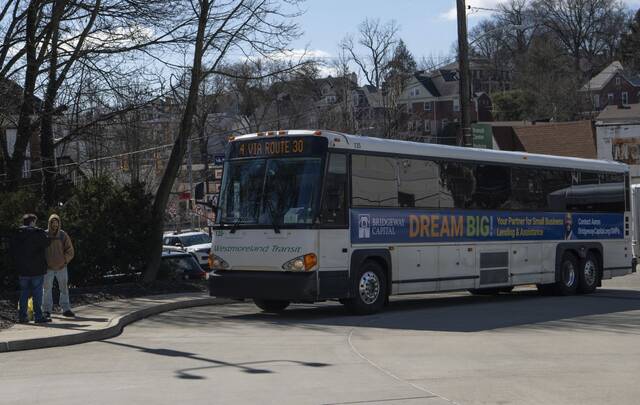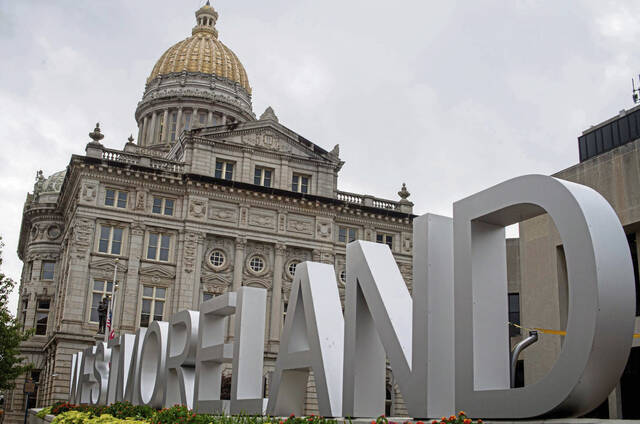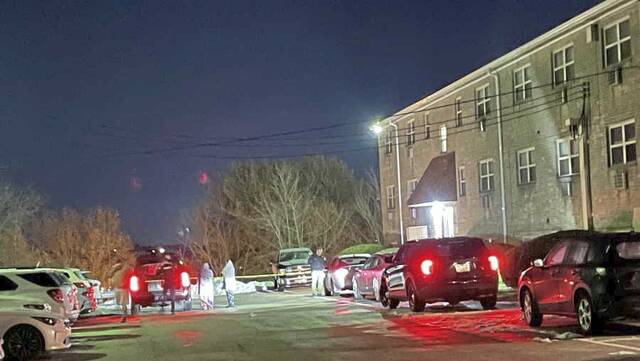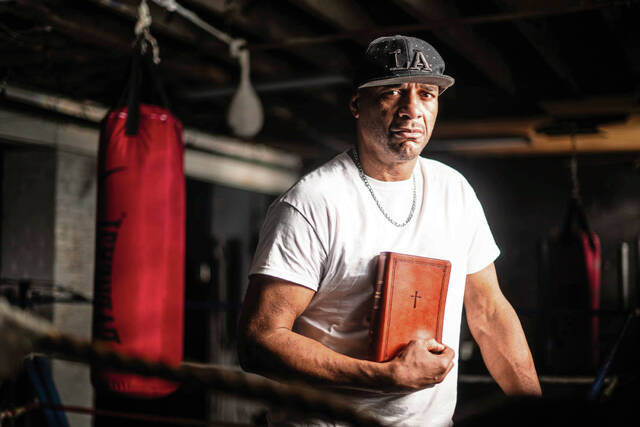Westmoreland County Transit Authority plans to replace 10 large commuter buses with smaller, more nimble versions that will both better navigate small city streets and match what has been declining demand.
The authority approved the purchase of 33-seat buses that are fueled by compressed natural gas from California-based manufacturer Gillig. They’ll take the place of 49-seaters that run on diesel fuel.
“We got those big buses for commuter service to Pittsburgh,” said authority Executive Director Alan Blahovec. “We still have commuters, but we don’t have as many. So we don’t need those big buses anymore.”
First placed into service in 2011, the diesel buses have exceeded their expected 12-year lifespan, Blahovec said. One already has been sold.
The 33-seat buses, with seating intended to be comfortable for longer commuter trips, also can be used on local routes, Blahovec said.
“Those big commuter buses are not much use to us,” he said. “You can’t run one through the streets in Greensburg or Jeannette or Latrobe. They don’t work.”
Commuter ridership dropped with the arrival of the covid pandemic in 2020.
“Whether or not it’s all going to come back is yet to be seen,” said Blahovec.
The authority’s fixed route ridership was at 205,561 for the 2023-2024 fiscal year that ended in July, according to Ashley Cooper-Brounce, the authority’s deputy executive director. That figure represents a 6% increase from the previous year, but Cooper-Brounce estimated it amounts to just 60% of typical pre-covid passenger numbers.
“Right now we have 41 buses on the fixed route service and we probably don’t need 41 buses,” Blahovec said. “As buses become more interchangeable, we may be able to lower our fleet count.”
It’s expected to take a year to 18 months for the new buses to arrive. The authority still will have a dozen of the larger diesel-fueled commuter buses in its fleet.
The new buses will cost about $750,000 each, purchased through a statewide contract administered by the Reading-based South Central Transit Authority. Blahovec said the majority of the total $7.5 million price should be covered by federal and state funding, with a local cost share of about $40,000.
Prices for the natural gas buses have increased with inflation, Blahovec said. He noted inclusion of newer technology to help in tracking buses on the road accounts for close to $50,000 of the per-bus cost.
But there are longer-term advantages in switching to natural gas. Blahovec cited a 2024 report by the Department of Energy indicating compressed natural gas was 61 cents cheaper then diesel fuel when converted to a diesel gallon equivalent.
“CNG is cleaner burning and cuts down on engine maintenance,” he added.








